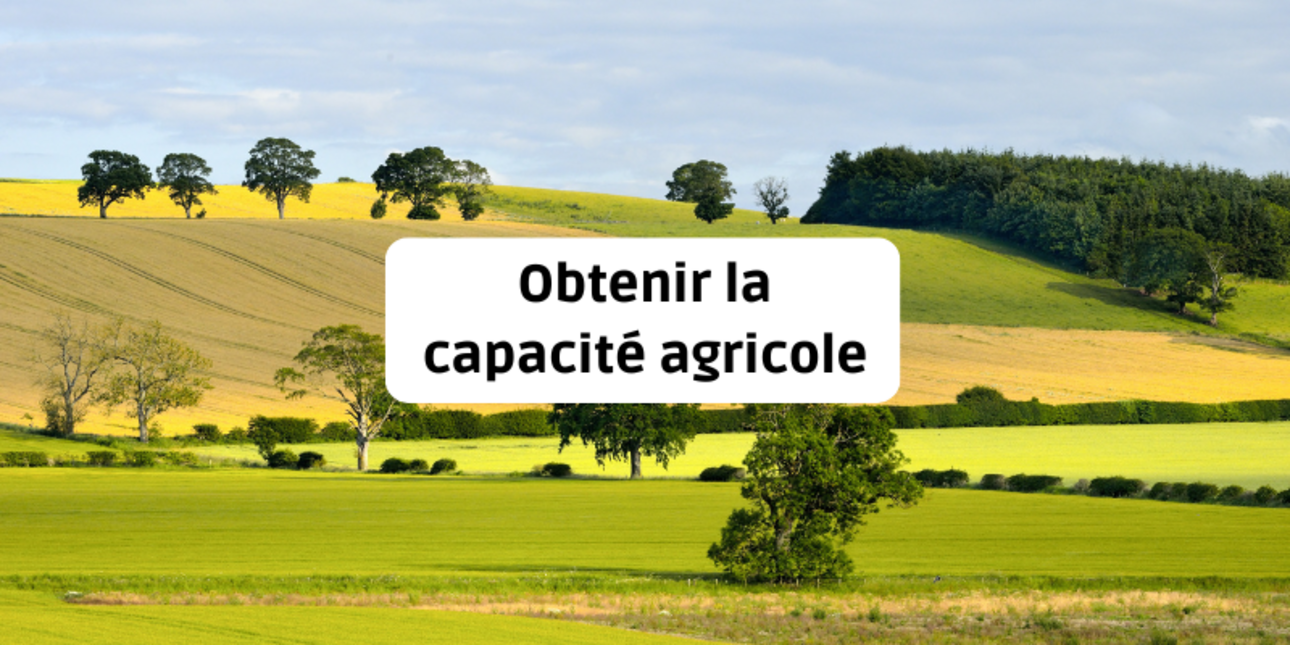
Agricultural professional competence (CPA) is an essential requirement for anyone wishing to set up as a farmer in France. It is not only crucial for obtaining start-up aid, but also for obtaining authorisation to farm land. This article explores the different ways of obtaining this qualification, and the administrative procedures involved.
Although it is possible to become a farmer without having any agricultural training, there are several reasons why it is essential to have farming experience:
Agricultural qualifications can be obtained in two main ways: initial training and continuing training.
A wide range of agricultural training courses are offered by numerous public and private establishments throughout France.
The "Enseignement agricole l'aventure du vivant" website provides a list of establishments offering agricultural training in France.
Initial training includes several recognised diplomas which confer the CPA:
For adults wishing to retrain or enhance their skills, continuing education offers flexible options:
As part of continuing education, it is possible to use Validation des Acquis de l'Expérience (VAE) to reduce the number of subjects to be taken.
This is a very useful way of retraining, as it allows you to benefit from funding or to take the course while in paid employment.
In addition to the traditional training route, it is also possible to obtain the agricultural vocational qualification through professional experience. This option is particularly suitable for people who have accumulated significant experience in the agricultural sector without having taken a diploma course.
If you only have a level III agricultural diploma (CAPA, BEPA, BPA), you will need to provide proof of at least 24 months' professional agricultural activity over the last 3 years.
If you do not have a level III or IV agricultural diploma, you must provide proof of at least 40 months' professional agricultural activity over the last 5 years.
This experience may have been gained as a farm employee, farm manager or in other relevant roles within agriculture.
The process of validating the qualification through professional experience involves compiling a solid file, including tangible evidence of the experience gained, such as work certificates, employers' references and, where appropriate, recommendations. This file is then examined by the Direction Régionale de l'Alimentation, de l'Agriculture et de la Forêt (DRAAF), which may grant the CPA on this basis.
This route offers official recognition of the skills acquired in the field and enables many professionals to regularise their situation and benefit from the same advantages as those who have followed a conventional training course. It's a valuable opportunity to make the most of practical experience and make it easier to set up as a farmer.
For urgent situations, it is possible to obtain gradual validation of the agricultural qualification.
Candidates must, of course, obtain their agricultural qualification once they have set up farming.
Applicants must send the DRAAF a file containing the following documents:
Reasoned letter of request for exemption,
Curriculum Vitae as complete as possible, describing professional experience related to the profession of farmer or farm manager,
Photocopies of diplomas, titles or certificates obtained,
Attestations for training courses completed,
Any supporting documents for professional activities and, where applicable, training courses completed,
Photocopy of national identity card or passport.
The candidate's overall career is taken into account. Applicants must hold a diploma or qualification that is at least level 4. Other diplomas or qualifications obtained, training courses completed and professional experience gained are also taken into account when the application is analysed.
It is the presumed ability to work as a farmer, and therefore the presumed possession of the professional skills set out in the references for the vocational baccalaureate diploma in agricultural business management (Baccalauréat professionnel CGEA) or the vocational diploma in agricultural business management (BP REA), that serve as the basis for the case-by-case assessment of applications for exemption.
Obtaining the CPA does not mean that applicants for start-up aid do not have to complete a Personalised Professionalisation Plan (PPP) and draw up a Business Plan (PE).
The Chamber of Agriculture plays a central role in assisting applicants, in particular through the Point Accueil Installation (PAI), which provides personalised information and advice.
Obtaining professional agricultural qualifications is a structured process that requires appropriate training and compliance with precise administrative procedures. Whether through initial or continuing training, or through professional experience, CPA opens the door to many opportunities in the agricultural sector, while ensuring responsible and efficient farm management.
For those considering a career in agriculture, it's vital to get in touch with the Points Accueil Installation for support tailored to each project.